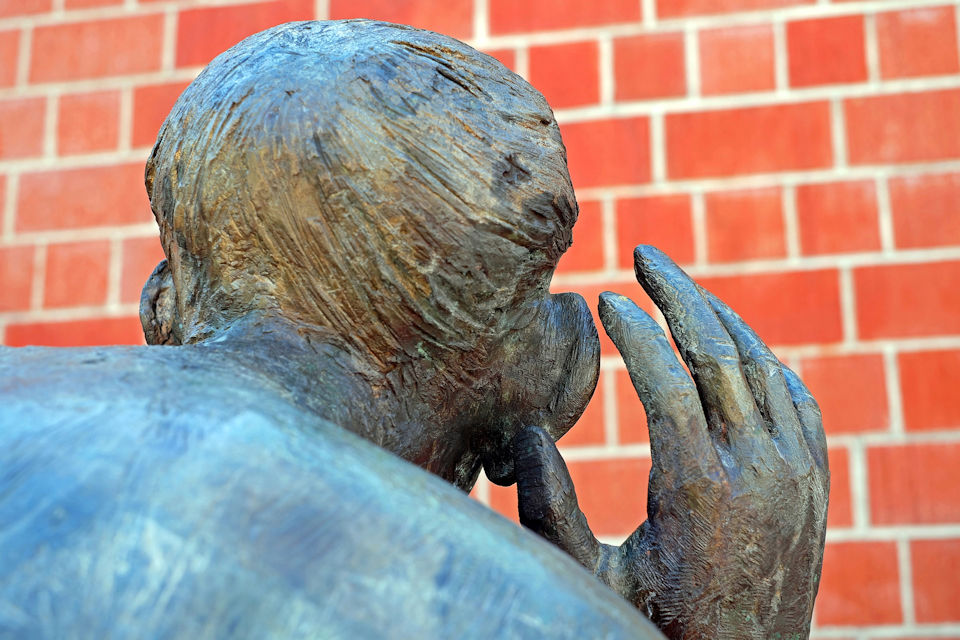The Rev. Glenn Wagner says that listening is very important, today as Bible times. He notes, “Jesus and Solomon both suggest that our ears are important in our discipleship.”
GLENN M. WAGNER
Michigan Conference Communications
Please hear me out.
An important part of effective witness for Jesus is using our ears.
According to the National Institute on Deafness and Other Communication Disorders, inability to hear and some hearing loss has been identified in two to three out of every 1,000 children in the US. Some natural hearing deficiencies affect nearly 28 million adults age 20-69. Signing ministries are valued by many who can’t hear and who learn to communicate with their hands. Those of us who are able to hear and who have no physical excuse should learn to cherish the gift of our ears and use them in the service of Jesus in loving our neighbors.
A wise mentor once shared with me the advice that, “God has given us two ears and only one tongue for a reason and it is an intelligent person who learns to listen twice as much as he/she speaks.”
Check out a biblical word search tool online and you will confirm that words like hearing, listen, and ears occur hundreds of times in the scripture.
In Mark 1:29-30 Jesus is asked by scribes searching for answers in the midst of a dispute, “Which commandment is the first of all.” Jesus answered, “The first is, `Hear, O Israel: The Lord our God, the Lord is one; and you shall love the Lord your God with all your heart, and with all your soul, and with all your mind, and with all your strength.’ The second is this, `You shall love your neighbor as yourself.’ There is no other commandment greater than these.”
Did you hear what Jesus offered? The first step to following the greatest commandments about loving God and neighbor involves our ears. We are urged to hear.
Proverbs 1:33 says about wisdom, “he who listens to me will dwell secure and will be at ease, without dread of evil.” The collection of biblical proverbs is oft attributed to Solomon who is remembered in 1 Kings 3:3-15 as being blessed by God with the gift of unparalleled wisdom. You don’t have to take it from me. Jesus and Solomon both suggest that our ears are important in our discipleship.
At the baptism of Jesus, in an event we remember each year during the liturgical season of Epiphany, a voice from heaven declares of Jesus, “This is my beloved Son, with whom I am well pleased; listen to him.” (Matthew 17:5)
This may sound like strange advice coming from a person who has spent more than 40 years delivering spoken sermons on Sunday, and who loves to talk. But I have come to believe that loving Jesus and serving him effectively as a witness to others is more likely to happen through the use of our ears than via the words from our mouths.
“I have come to believe that loving Jesus and serving him effectively as a witness to others is more likely to happen through the use of our ears than via the words from our mouths.”
An intensive part of my own pastoral education in seminary counseling classes and subsequent hospital chaplaincy training consisted of teaching us how to become self-aware and able to listen to the body language, feelings, and verbal cues of others. We spent long hours practicing our listening skills, typing up verbatim records of our counseling conversations and then evaluating our responses individually and collectively.
An unforgettable lesson in listening was given to me by Dr. John Savage, who came to our church one weekend to conduct a series of training classes for persons interested in improving their own listening skills. In a large room filled with people, Dr. Savage asked for a volunteer who would be willing to sit upfront so that he could interview her and model for us effective listening techniques such as paraphrasing, reflecting, and empathy. The volunteer was a church member that I had known for eight years. I was stunned by the revelation of that interview.
In five minutes of intensive and skilled pastoral listening, that parishioner shared a world of profound hurt and loneliness and received an amazing gift of grace. It was a holy revelation as we witnessed how effective listening can be an act of profound love for others. I was made aware of how unaware I had been of the real needs for skilled and compassionate listening that had been hidden right in front of me.
Dr. Savage explained that most of us share a striking similarity to an iceberg floating in the ocean. The visible portion of an iceberg above the surface is only the tip of a much larger mass. Effective listening allows the recipient of that gift of hearing to get in touch with and express memories, feelings, and emotions that otherwise remain hidden and out of public view.
Listening to others is a skill that can benefit from hard work and gifted mentors. I am still a work in progress and wish by now I was a better listener. I retain painful memories when my self-absorption missed hearing the real needs of others right in front of me. I also recall blessed moments when I really listened well as an act of loving concern or when I was the recipient of that graceful gift of hearing from others.
Lord, help us today to become better listeners with others as agents of your grace. May these words to a well know hymn by Clara Scott express our hopes.
Open my ears, that I may hear
voices of truth thou sendest clear;
and while the wave notes fall on my ear,
everything false will disappear.
Silently now I wait for thee,
ready, my God, thy will to see.
Open my ears, illumine me, Spirit divine!
Last Updated on February 3, 2020

